Local search optimization is no longer just an option for small businesses like home service providers or neighborhood restaurants and cafes; it’s a necessity. With the majority of consumers turning to search engines to find services “near me,” appearing prominently in local search results can drive significant growth for your business.
This guide will walk you through the key steps to boost your local search presence and attract more customers.
Why is Local Search Important for Small Businesses?
Local search optimization allows your business to appear in front of potential customers who are actively looking for the products or services that you offer in your area. Consider this:
- 46% of all Google searches seek local information.
- 76% of people who perform a local search on their smartphone visit a physical business within 24 hours.
By optimizing your business for local search, you position yourself where your customers are already looking, allowing you to drive more foot traffic, inquiries, and ultimately, sales.
14 Steps to Optimize Local Search for Small Business Growth
1. Claim and Optimize Your Google Business Profile
Your Google Business Profile is the foundation of your local search success. Ensure that:
- Your business name, address, and phone number (NAP) are accurate.
- You upload high-quality photos of your storefront, products, and services.
- You encourage and respond to customer reviews regularly.
Pro Tip: Use Google Posts to share promotions, updates, or events directly on your profile.
2. Conduct Local Keyword Research
Identify keywords potential customers in your city or region are using. For example:
- “Best home contractors in [City Name]”
- “Family-friendly cafes near me”
Use tools like Google Keyword Planner or Ubersuggest to find popular search terms specific to your industry and location.
3. Encourage Customer Reviews
Online reviews play a significant role in local SEO. They improve your credibility and influence customer decisions.
- Ask satisfied customers to leave feedback on Google, Yelp, or Facebook.
- Respond to reviews (good and bad) to show you value customer input.
4. Build Local Citations
Citations are mentions of your business on online directories like Yelp, Bing Places, and niche-specific platforms. At a minimum, list your business on high-authority directories like:
- Yelp
- BBB
- Thumbtack
Consistency in your NAP across all listings is critical.
5. Optimize Your Website for Local SEO
Make your website local-friendly by including:
- Your business name, address, and phone number (NAP).
- Dedicated pages for key services tailored to local customers.
- Location-specific content like blog posts about events or trends in [City Name].
6. Use Schema Markup
Implement local business schema markup to help search engines better understand your business and display relevant information like hours, pricing, and reviews in search results.
7. Engage with Customers Online
Stay connected with your local audience by:
- Promptly responding to questions on Google or other similar platforms.
- Participating in local online forums or groups to build community trust.
8. Invest in Local Search Ads
Google Local Services Ads are a great way to appear at the top of local search results. Ads targeting specific areas ensure your business reaches customers nearer to you, maximizing conversions.
9. Make Your Website Mobile-Friendly
Many local searches happen on smartphones. Make sure your website:
- Loads quickly.
- Is easy to navigate.
- Features clickable phone numbers and directions.
10. Create High-Quality Location-Based Content
Content helps establish authority while improving online visibility. Some ideas include:
- “The Top 5 Home Services in [Region Name]”
- “Must-Try Breakfast Spots in [City Name]”
11. Leverage Location-Based Social Media Marketing
Social media is a powerful tool for reaching local customers. Use platforms like Instagram and Facebook to:
- Promote location-specific offers.
- Share customer stories or testimonials from [City Name].
12. Monitor Results
Track your progress and adjust your strategies using tools like Google Analytics, Google Search Console, or SEMrush to monitor:
- Local keyword performance.
- Website traffic.
- Conversions from local searches.
13. Stay Updated
Local search trends constantly evolve. Follow trusted online SEO websites and forums to keep up with best practices, algorithm updates, and tools.
14. Consider Hiring a Local SEO Expert
If local search optimization feels too overwhelming, a professional can take the load off and create a tailored strategy that meets your business needs.
Final Thoughts
Local search optimization is a game-changer for small businesses in [City Name, State Abbreviation, Region Name]. By following these steps, you can attract customers in your area and achieve sustained business growth.
Need help with your local SEO strategy? Contact us to discuss how we can optimize your digital presence and grow your customer base.
We Want To Talk To You About Your Marketing Goals.
Let’s Supercharge Your Online Growth!












